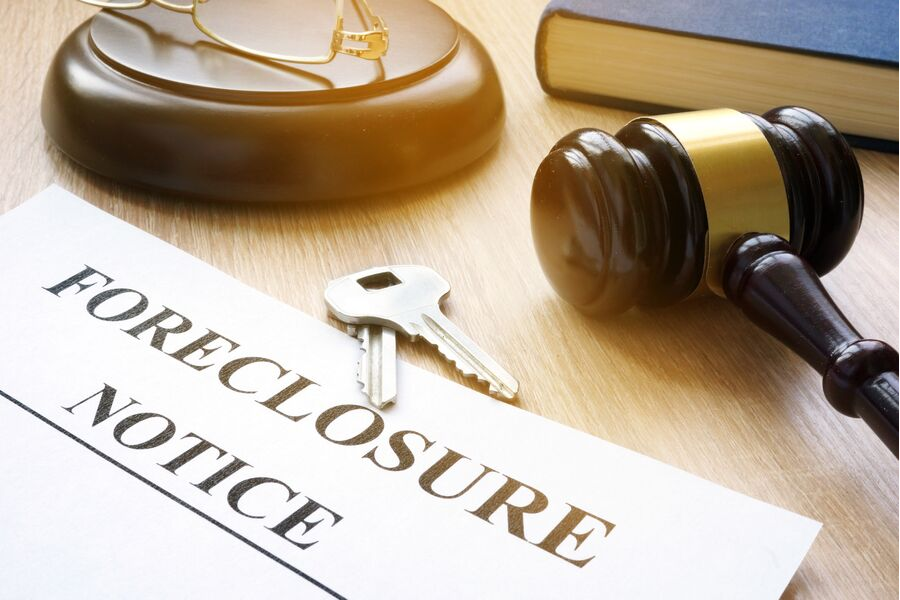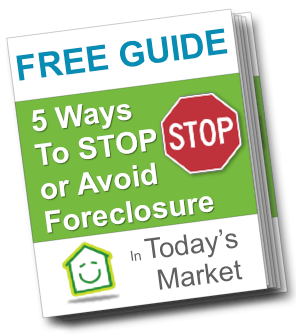
So, are you behind on payments and avoiding foreclosure in California at the moment? Want to learn how to stop foreclosure now?
We’ve created free online guides to help homeowners in the Southern California counties of Los Angeles, Orange County, Riverside, San Bernardino, San Diego and Ventura just like you find out your options on getting out of the sticky situation you’re in right now.
You aren’t the first person to go through a foreclosure… and won’t be the last. So don’t feel ashamed. It happens.
The best thing you can do right now is educate yourself on your options.
Homesmith Group can assist you if you are facing foreclosure on your California property and not sure how to navigate the process. We offer a free consultation to review your options to avoid a challenging financial situation and ultimately stop or avoid foreclosure if possible. This could involve working with your lender to avoid a foreclosure, or chosing to sell your home if you determine that’s your best option.
For some people selling your home is the best option (we’ll make a fair all cash offer on your house today, just let us know about your situation here <<), sometimes we’re able to help homeowners STOP FORECLOSURE completely, and sometimes there are other options. So, click one of the buttons above to get your FREE GUIDE To Stop Or Avoid Foreclosure.
“List My House For Sale”
- Have 4-6 months? Listing may put more in your pocket
- Save your credit from the wreckage of a foreclosure
- See if your situation qualifies
“Get A Fair Cash Offer Today”
- Let us know about your situation and your house
- We’ll evaluate it quickly (usually within 48 hours)
- You’ll receive a fair win-win all cash offer
5 Ways To Stop or Avoid Foreclosure In Today’s Market
GET YOUR FREE GUIDE
Need more information on the foreclosure process and how to stop or avoid foreclosure?
FREE GUIDE: 5 Ways To STOP or Avoid Foreclosure in Today’s Market
Or, you can always feel free to Contact us anytime if you have questions, want a no hassle Situation Evaluation, or want to just learn more about how we can help homeowners avoid foreclosure or sell unwanted properties for cash.
Just call (855) HOMESMITH (466-3764)!
FAQs On California Foreclosure Process
Frequently Asked Questions
The following are a quick collection of frequently asked questions people ask us on the foreclosure process in California quick… along with our answers. While the information on this page is about legal issues it is for informational purposes only. It is NOT intended as legal advice or as a substitute for the particularized advice of your own legal counsel. If you have a questions, don’t hesitate to contact us (or give us a call) and we’ll be happy to answer it for you.
What type of State is California regarding foreclosure laws?

- In California, foreclosures are typically non-judicial, meaning they do not go through the court system. Instead, the lender must follow specific procedures outlined in the deed of trust or mortgage, including sending notices to the homeowner and publishing a notice of sale in a local newspaper. California does not have a statutory right of redemption.
- There may also be other state-specific laws and regulations that could impact foreclosure proceedings, such as homeowner protection laws or programs. It’s important to consult with a qualified attorney or housing counselor who is familiar with the laws and procedures in your specific state to understand your rights and options when facing foreclosure.
What are the first things a California homeowner should do when warned by a lender they are facing foreclosure?
- If a California homeowner is warned by a lender that they are facing foreclosure, the first things they should do are:
- Contact the lender: Homeowners should immediately contact their lender to discuss their options. The lender may be willing to work out a solution with the homeowner, such as a loan modification or forbearance agreement.
- Gather financial documents: Homeowners should gather all their financial documents, such as bank statements, pay stubs, and tax returns. This information will be necessary when discussing options with the lender.
- Contact a housing counselor: Homeowners can contact a HUD-approved housing counselor for free assistance. These counselors can help homeowners understand their options and work with their lender on their behalf.
- Consider legal representation: Homeowners may also want to consider contacting a foreclosure attorney for legal representation. An attorney can help homeowners understand their legal rights and options, and may be able to negotiate with the lender on their behalf.
- Avoid foreclosure rescue scams: Homeowners should be wary of foreclosure rescue scams, which may promise to stop the foreclosure process for a fee. These scams often result in homeowners losing their homes and their money. Homeowners should only work with reputable and trusted professionals.
What damage could a foreclosure do to a California homeowner’s credit report?
- In California, a foreclosure can have a significant negative impact on a homeowner’s credit report. It may result in a drop of 200-300 points in credit score and remain on the credit report for up to 7 years. The foreclosure can also affect the ability to obtain credit, including loans, credit cards, and even employment opportunities. It is important to note that the exact impact on credit will depend on each homeowner’s specific circumstances, such as their credit history and the type and severity of the foreclosure.
What federal laws supersede California laws regarding foreclosure?
- The Servicemembers Civil Relief Act (SCRA): This federal law provides certain protections to active-duty military members who are facing foreclosure. Under the SCRA, foreclosure proceedings can be postponed or stayed if the homeowner is on active duty or within a certain period after leaving active duty.
- The Homeowner Protection and Stability Act (HPSA): This federal law requires mortgage lenders to follow certain guidelines when providing homeowners with notices of default and pursuing foreclosure. It also requires lenders to consider options for loan modifications and other alternatives to foreclosure.
- The Dodd-Frank Wall Street Reform and Consumer Protection Act: This federal law established the Consumer Financial Protection Bureau (CFPB), which has the authority to regulate mortgage servicers and enforce regulations related to foreclosures.
- In general, federal laws regarding foreclosure provide additional protections for homeowners and may offer more options for avoiding foreclosure than state laws alone.
If you are facing the possibility of foreclosure in California, what steps can you take to stop or avoid the process?
- Contact your lender: The first step is to communicate with your lender as soon as possible. Explain your situation and see if they are willing to work out a solution, such as a loan modification, forbearance, or repayment plan. Many lenders prefer to avoid foreclosure and may be willing to work with you to find a mutually agreeable solution.
- Hire a foreclosure attorney: Consider hiring a foreclosure attorney who can provide legal advice and represent your interests. They can review your loan documents, negotiate with your lender, and help you understand your rights and options under California foreclosure laws.
- Apply for a loan modification: You may be eligible for a loan modification, which can change the terms of your mortgage to make it more affordable. This could include reducing the interest rate, extending the loan term, or even reducing the principal balance. You will need to submit a formal application to your lender with supporting financial documents.
- Explore government programs: California has several government programs aimed at helping homeowners facing foreclosure, such as the California Homeowner Bill of Rights, Keep Your Home California, and the Mortgage Reinstatement Assistance Program (MRAP). These programs may provide financial assistance, legal protections, or other resources to help you avoid foreclosure.
- Sell your home: If you are unable to afford your mortgage payments, selling your home voluntarily may be an option. This can help you avoid the foreclosure process and may allow you to pay off your mortgage debt and possibly even keep some equity. For a free no-obigation all-cash offer, please consider contacting Homesmith Group at (855) HOMESMITH (466-3764) or this link.
- Consider bankruptcy: Filing for bankruptcy may provide an automatic stay, which can temporarily halt the foreclosure process. However, bankruptcy should be considered carefully, as it has long-term financial implications and may not always be the best solution for everyone.
- Be cautious of foreclosure rescue scams: Unfortunately, there are scams that prey on homeowners facing foreclosure. Be wary of anyone promising to stop or prevent foreclosure for a fee. Always research and verify the legitimacy of any individual or organization before working with them.
- Note: It’s important to note that foreclosure laws and processes vary by state, and California has specific laws governing foreclosure. It’s advisable to seek legal advice from a qualified professional familiar with California foreclosure laws to understand your rights and options based on your specific situation.
When facing foreclosure in California, can you explain how filing for bankruptcy could stop or delay the foreclosure?
Filing for bankruptcy can potentially stop or delay foreclosure proceedings, depending on the type of bankruptcy you file and your specific situation. Here are some ways that bankruptcy can help:
- Automatic stay: When you file for bankruptcy, an automatic stay goes into effect immediately. This means that creditors, including your mortgage lender, must stop all collection efforts, including foreclosure proceedings. The automatic stay can provide a temporary reprieve from foreclosure and give you time to catch up on missed payments or explore other options.
- Chapter 13 bankruptcy: If you file for Chapter 13 bankruptcy, you may be able to keep your home and catch up on missed mortgage payments over a three to five-year repayment plan. This can provide a more sustainable solution than trying to catch up on missed payments all at once.
- Chapter 7 bankruptcy: While Chapter 7 bankruptcy does not provide a repayment plan, it can temporarily delay foreclosure proceedings and provide you with more time to find a solution.
- Note: It’s important to note that filing for bankruptcy is not a guaranteed solution and may not be the best option for everyone facing foreclosure. It can also have long-lasting impacts on your credit and financial situation. It’s important to consult with a qualified bankruptcy attorney and explore all of your options before deciding to file for bankruptcy.
What legal costs can a California homeowner expect if fighting a lender from a foreclosure?
- First, the type of foreclosure process being used (judicial or non-judicial) can impact the legal costs. In a judicial foreclosure, the lender must file a lawsuit and obtain a judgment from the court, which can involve more time and legal fees. In a non-judicial foreclosure, the legal costs may be lower since the process is generally simpler.
- Second, the complexity of the case can impact the legal costs. If the homeowner has a strong legal case and the lender is willing to negotiate, the costs may be lower. However, if the case is complex and requires extensive research or multiple court appearances, the legal costs can quickly add up.
- Third, the attorney fees can vary based on the attorney’s experience, location, and hourly rate. Some attorneys may offer a flat fee for foreclosure defense services, while others may charge hourly.
- It’s difficult to estimate a specific range of legal costs for fighting a foreclosure since each case is unique. However, homeowners should be prepared for potentially high legal costs and should consult with a qualified attorney to understand their options and costs. Additionally, homeowners may be able to obtain free or low-cost legal assistance through local legal aid organizations or pro bono programs.
Homesmith Group Can Help You
Stop Or Avoid Foreclosure
If you are facing foreclosure on your Ohio house and not sure of your next step, Homesmith Group can help. We offer a free consultation to review your options to stop or avoid foreclosure. We will walk you through all of your options to avoiding a difficult financial situation. This could include working with the bank to avoid foreclosure altogether, or selling your house if you decide that’s the right option for you. Just fill out the form below to get started.
California homeowners are reminded that time is of the essense when confronted with a possible foreclosure. Get started now so your property doesn’t end up in a Sheriff’s Sale in your county. The sooner action is taken, the more options will be available.
Foreclosure Resources For California Homeowners
There are several reliable resources that can provide information and assistance when trying to avoid or stop foreclosure in California. Here are some useful resources:
California Housing Finance Agency (CalHFA): CalHFA is a state agency that offers a variety of programs and resources for homeowners facing foreclosure in California. They provide information on foreclosure prevention options, mortgage assistance programs, and foreclosure counseling services. You can visit their website at https://www.calhfa.ca.gov/ or call their toll-free hotline at 1-877-9CALHFA (1-877-922-5432) for more information.
U.S. Department of Housing and Urban Development (HUD): HUD is a federal agency that offers resources and information on avoiding foreclosure, including foreclosure avoidance counseling, loan modification programs, and foreclosure alternatives. You can visit their website at https://www.hud.gov/topics/avoiding_foreclosure or call their toll-free hotline at 1-800-569-4287 for assistance.
California State Bar Association: The State Bar of California provides resources for finding a qualified attorney who specializes in foreclosure and real estate law. You can visit their website at https://www.calbar.ca.gov/ or use their “Find Legal Help” tool to search for attorneys in your area who can assist with foreclosure-related matters.
Keep Your Home California: Keep Your Home California is a state-run program that offers various options for homeowners facing foreclosure, such as mortgage assistance, loan reinstatement, and transition assistance. You can visit their website at http://www.keepyourhomecalifornia.org/ or call their toll-free hotline at 1-888-954-5337 for more information.
Consumer Financial Protection Bureau (CFPB): The CFPB is a federal agency that provides information and resources on foreclosure prevention, including tools, guides, and educational materials. You can visit their website at https://www.consumerfinance.gov/consumer-tools/foreclosure/ for information on avoiding foreclosure in California.
Homeownership Preservation Foundation (HPF): The HPF is a nonprofit organization that offers free foreclosure prevention counseling services through their hotline at 1-888-995-HOPE (1-888-995-4673). Their certified housing counselors can provide information, guidance, and personalized assistance to homeowners facing foreclosure, including helping them understand their options, negotiate with their lender, and develop a plan to avoid foreclosure. You can also visit their website at https://www.995hope.org/ for more information and resources.
California Attorney General’s Office: The California Attorney General’s Office provides resources and information on foreclosure prevention and consumer protection related to foreclosure in the state. Their website at https://oag.ca.gov/consumers/general/foreclosure contains information on foreclosure laws, rights, and resources for homeowners in California. You can also contact their Consumer Protection Division at 1-800-952-5225 for assistance or file a complaint if you suspect fraud or unfair practices related to your foreclosure.
California Department of Housing and Community Development (HCD): The HCD is a state agency that provides a wide range of programs and services related to housing, including foreclosure prevention resources. They offer programs such as Keep Your Home California, which provides various types of assistance to eligible homeowners facing financial hardship. You can visit the HCD website at http://www.hcd.ca.gov/ for more information on their programs and services related to foreclosure prevention.
Housing Counseling Agencies: HUD-approved housing counseling agencies can provide free or low-cost counseling services to homeowners facing foreclosure. These agencies can help you understand your options, negotiate with your lender, and develop a plan to avoid foreclosure. You can find a list of HUD-approved housing counseling agencies in California on the HUD website at https://apps.hud.gov/offices/hsg/sfh/hcc/hcs.cfm?webListAction=search&searchstate=CA.
Note: Remember to always verify the legitimacy of any resource or service you use and consider consulting with a qualified attorney or housing counselor for personalized advice tailored to your situation.


